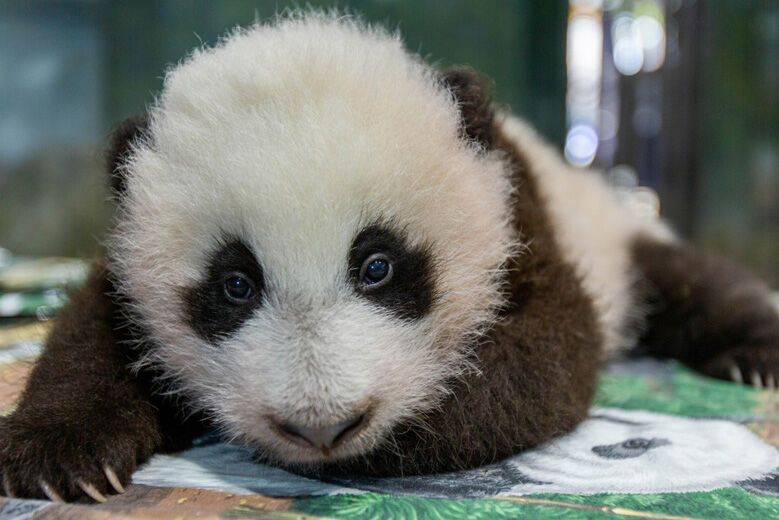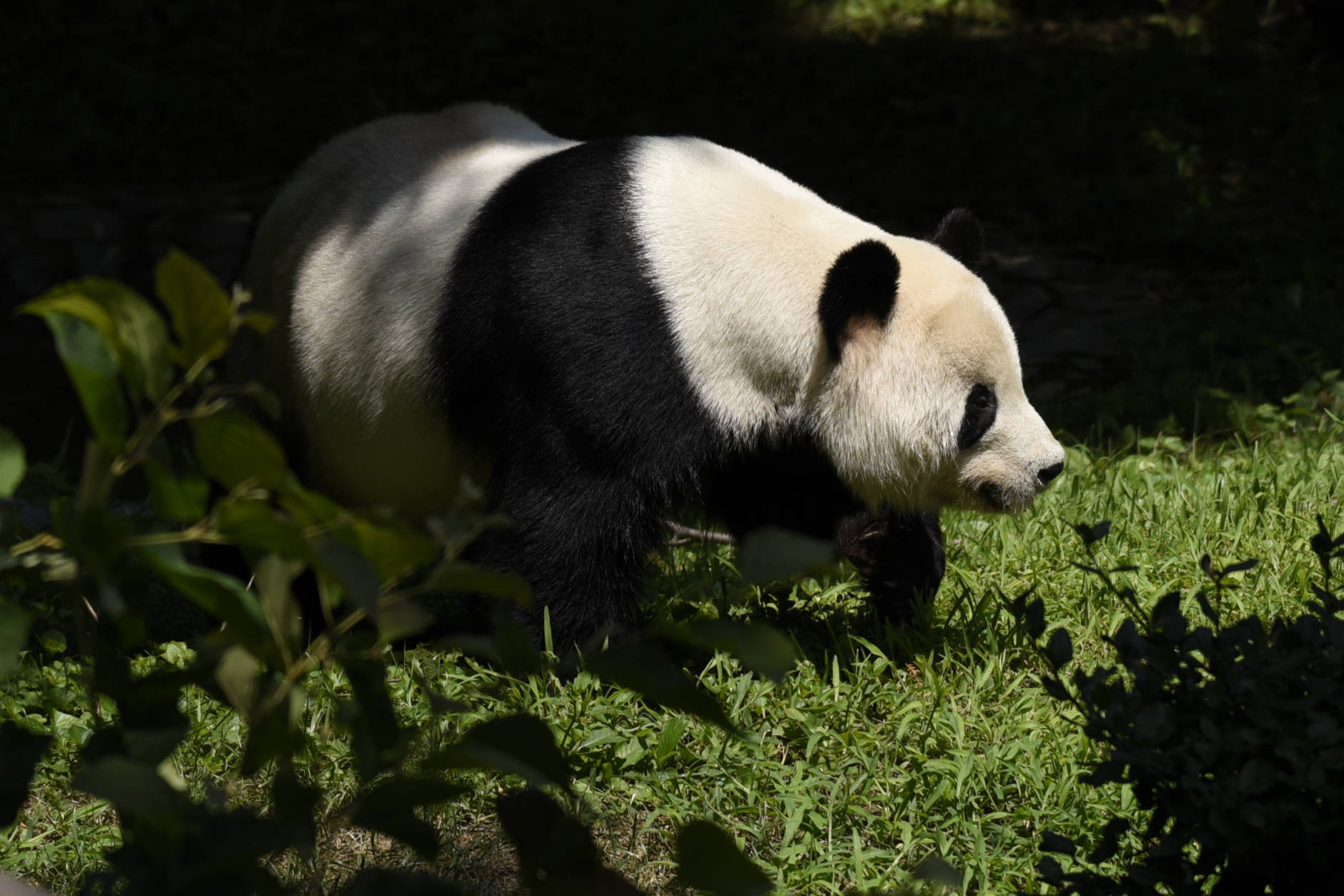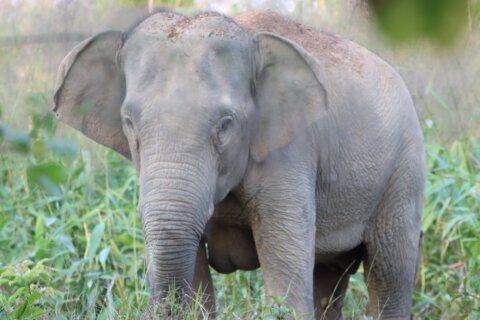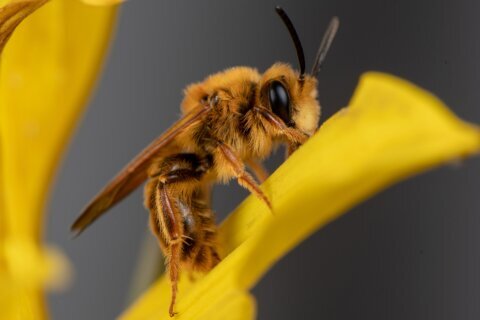



The pandas at the National Zoo are staying put — for now.
An agreement between the Smithsonian’s National Zoo and a China wildlife association has been extended through nearly the end of 2023, allowing the zoo’s famous giant panda couple — in addition to their new cub Xiao Qi Ji — to stay at the zoo for a few more years.
The current agreement, which has been extended twice before, was announced by the zoo Monday, which was the deadline.
The renewed deal keeps mother Mei Xiang (which means “Beautiful Fragrance”) and father Tian Tian (“More and More”) at the zoo until Dec. 7, 2023. A separate agreement requires the the new cub, whose upbringing has been documented via the zoo’s closely watched Panda Cam, to move to China before his fourth birthday.
“Pandas are amazingly charismatic and they’re cute,” zoo director Steven Monfort told WTOP. “There’s no way that anybody could look at a panda bear, especially a cub, and not just sort of have their hearts melt. So we know they have that attraction. But beyond that, they represent the hope, I believe, for conservation in the future, because it’s a great success story: The species was endangered and now is on its way back. And we’ve got a great partnership with our Chinese colleagues and together we’re helping to save pandas from extinction.”
Under the breeding agreement, Mei Xiang and Tian Tian have lived at the zoo since 2000, and the pair’s longevity at the zoo have been critical to panda research program, zoo officials say.
During their years in D.C., Mei Xiang and Tian Tian have raised three other cubs over the years. Under the breeding agreement with the China Wildlife and Conservation Association, cubs born at the National Zoo return to China around the time of their fourth birthday. Most recently, cub Bei Bei bid farewell to the zoo in November 2019.
Over the summer, Mei Xiang surprised panda-watchers around the world when she gave birth to Xiao Qi Ji (“Little Miracle”) in August, become the oldest giant panda to give birth in North America.
Monfort told WTOP it’s unlikely there’ll be another extension for Mie Xiang and Tian Tian, who will then be 25 and 26 years old. At that age, “the Chinese will definitely insist they return to China,” Monfort said, “And so we won’t be surprised by that.”
While new cub Xiao Qi Ji will only be 3 and 1/2 years old by the time the agreement expires — just shy of the customary 4 years old — Monfort said the ages “match up” for all three pandas to travel to China together at the end of 2023.
Giant pandas have lived at the National Zoo under a partnership with China since 1972 and Monfort said the zoo would like to continue the legacy.
“We certainly would like to have giant pandas in our future,” he told WTOP. “We will be at 51 years of having giant pandas in 2023, so it’s our hope we’re going to be able to keep that tradition going and that great partnership going for many years to come.
The zoo also announced Monday that billionaire philanthropist David Rubinstein has pledged an additional $3 million gift to fund the zoo’s Conservation Biology Institute and its panda program though the end of 2023.
WTOP’s John Domen contributed to this report.








